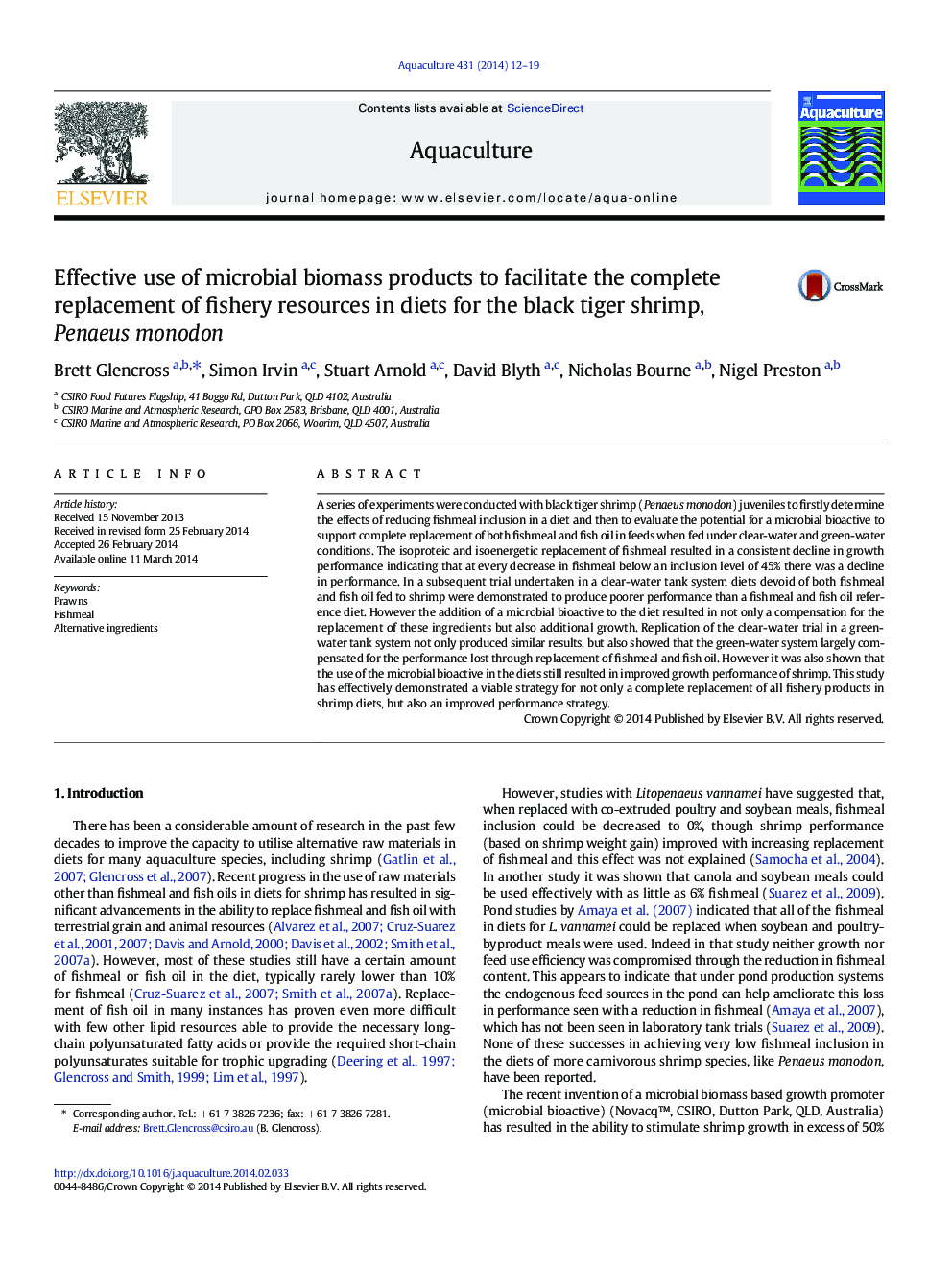| Article ID | Journal | Published Year | Pages | File Type |
|---|---|---|---|---|
| 8494992 | Aquaculture | 2014 | 8 Pages |
Abstract
A series of experiments were conducted with black tiger shrimp (Penaeus monodon) juveniles to firstly determine the effects of reducing fishmeal inclusion in a diet and then to evaluate the potential for a microbial bioactive to support complete replacement of both fishmeal and fish oil in feeds when fed under clear-water and green-water conditions. The isoproteic and isoenergetic replacement of fishmeal resulted in a consistent decline in growth performance indicating that at every decrease in fishmeal below an inclusion level of 45% there was a decline in performance. In a subsequent trial undertaken in a clear-water tank system diets devoid of both fishmeal and fish oil fed to shrimp were demonstrated to produce poorer performance than a fishmeal and fish oil reference diet. However the addition of a microbial bioactive to the diet resulted in not only a compensation for the replacement of these ingredients but also additional growth. Replication of the clear-water trial in a green-water tank system not only produced similar results, but also showed that the green-water system largely compensated for the performance lost through replacement of fishmeal and fish oil. However it was also shown that the use of the microbial bioactive in the diets still resulted in improved growth performance of shrimp. This study has effectively demonstrated a viable strategy for not only a complete replacement of all fishery products in shrimp diets, but also an improved performance strategy.
Related Topics
Life Sciences
Agricultural and Biological Sciences
Aquatic Science
Authors
Brett Glencross, Simon Irvin, Stuart Arnold, David Blyth, Nicholas Bourne, Nigel Preston,
